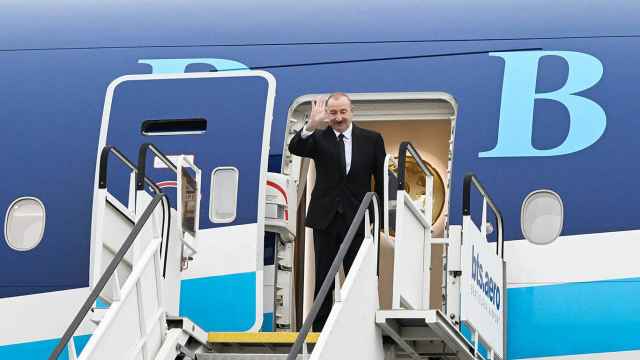Finnish citizens and companies that own real estate on Russian territory near the border will have to give up their land under a new law.
According to Russia's land law, which has been in effect since 2001 and has recently returned to the spotlight, foreigners cannot own real estate on border territories. A list of specific areas that fall under this category was only signed by President Dmitry Medvedev on Jan. 9, 2011.
Included on the list are municipal districts in the Leningrad region such as the Vyborgsky, Kingisepsky, Lomonosovsky, Slantsevsky and Sosnovoborsky municipal districts.
The Finnish Foreign Ministry sent an inquiry to its Russian counterpart to clarify what would happen to real estate on the lands in question bought by Finnish citizens before 2011.
Mikko Kivikoski, a counselor at the ministry, told Fontanka.ru that those citizens would have to give back the land within a year.
"In any case, we are probably only speaking about dozens of Finnish citizens who have real estate on those territories, not about hundreds," said Niko Nurminen, spokesman for the Finnish Consulate General in St. Petersburg, adding that the consulate has not received any complaints from Finnish citizens regarding the matter.
According to research done by Finland's Eastern University last year, most Finns would like to limit the right of Russian citizens to buy real estate in Finland, the Vyborgskiye Vedomosti newspaper reported.
In 2011 alone, Russian citizens made 459 real estate deals in Finland, while 800 deals were closed in 2008.
According to the 47News portal, foreign citizens own 317 plots of land on the border territories listed by Russia, totaling 80 hectares. The majority of them are from Ukraine, Kazakhstan and Estonia. Legal bodies own 22 hectares of land, including the Finnish company Neste, whose director and founder are Finns. The owner of the land is, however, Russian.
A Message from The Moscow Times:
Dear readers,
We are facing unprecedented challenges. Russia's Prosecutor General's Office has designated The Moscow Times as an "undesirable" organization, criminalizing our work and putting our staff at risk of prosecution. This follows our earlier unjust labeling as a "foreign agent."
These actions are direct attempts to silence independent journalism in Russia. The authorities claim our work "discredits the decisions of the Russian leadership." We see things differently: we strive to provide accurate, unbiased reporting on Russia.
We, the journalists of The Moscow Times, refuse to be silenced. But to continue our work, we need your help.
Your support, no matter how small, makes a world of difference. If you can, please support us monthly starting from just $2. It's quick to set up, and every contribution makes a significant impact.
By supporting The Moscow Times, you're defending open, independent journalism in the face of repression. Thank you for standing with us.
Remind me later.





